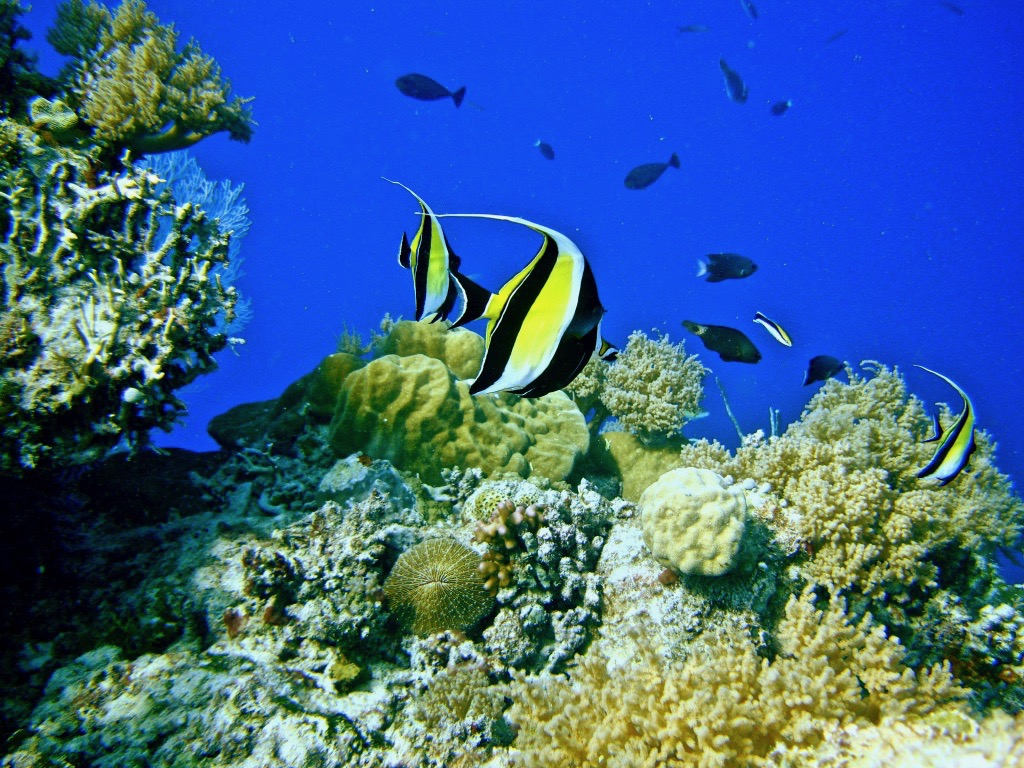
Local scientist travels to Monaco for climate conference
Bob Steneck, professor of marine sciences based at the University of Maine’s Darling Marine Center in Walpole, traveled to Monaco for the Ocean Solutions Initiative.
Convened by Monaco’s Prince Albert II, the initiative brought together coral reef experts from seven countries including Monaco, France, Japan, Australia, Saudi Arabia, Israel and the USA to discuss global and local measures to reduce the risks and impact of climate change on coral reefs.
Coral reefs are arguably the world’s most endangered marine ecosystems. They have been subject to negative impacts of pollution and coastal development for decades. Since the late 1980s, they are also have been stressed by ocean warming and, to a lesser extent, ocean acidification. Extreme warming events have led to recurrent large-scale coral bleaching and mass-mortality events. Such events are projected to become increasingly frequent in decades to come.
“The splendor of coral reefs attracts lots of people, so the stresses created by our changing climate are seen by more people than just about any other ecosystem,” notes Steneck. “In a way, coral reefs are the canaries on our ‘mineshaft’ earth. They struggling today.”
The Paris Agreement – drafted in 2015 by 195 nations worldwide – aimed to limit global warming to 1.5 to 2 ºC above pre-industrial temperatures. This would be beneficial to coral reefs and would considerably limit the risks compared to a business as usual CO2 emission scenario.
However, implementation of the Paris Agreement has been slow and it remains uncertain whether the objectives will be met. Even if they are achieved, warming of 1.5-2 ºC would still have considerable negative impacts on coral reef systems.
Steneck says, “The climate-driven coral bleaching of the Great Barrier Reef should be a wake-up call for all of us. We need to find ways of curbing emissions if we are to preserve these beautiful ecosystems for future generations.”
Protecting coral ecosystems will require a profound transformation of societies worldwide, and ultimately deep decarbonization of the world’s economies. While this transformation is underway, it may also be productive to pursue other approaches, including protecting coral reefs and and leveraging the evolutionary potential of these incredibly diverse ecosystems. Such actions may enable their own adaptive responses to adjust to the rapidly changing climate.
These complementary strategies were the focus of the Ocean Solutions Initiative. Much discussion revolved around the question of whether we can do anything meaningful and soon enough about our planet’s runaway changing climate or not. “I’m more of a ‘Yes, we can’ kind of guy,” said Steneck.
Through this and related efforts, the scientific community is developing recommendations for decision makers on what different strategies can and cannot achieve. This guidance will be important as we work from the local to the international level to meet the goals of the United Nations Framework Convention on Climate Change.
